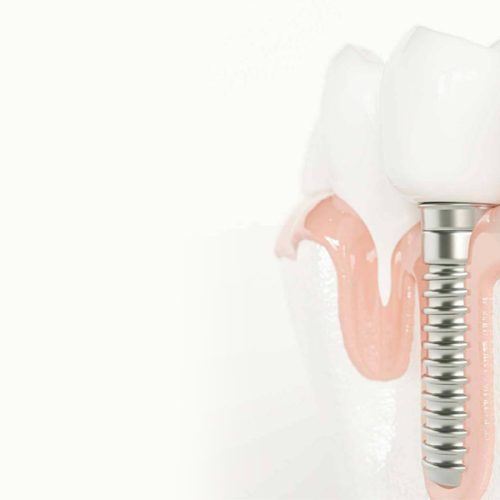Do you want to improve your confidence in the way you smile?
Are you tired of dealing with the slippage that comes with dentures?
Maybe you are suffering from pain from a broken or severely cracked tooth or missing teeth?
A missing or damaged tooth or multiple teeth can lose your confidence and ability to eat your favourite food while suffering from pain in chewing.
It might lead to more cosmetic problems as well.
There are tooth replacements options available.
However, dental implants are by far one of the best tooth replacement solutions for your missing teeth.
Dental implants provide the dental support you need while perfectly matching your natural teeth for a naturally beautiful, long-lasting, bright smile.
That is why its success rate is at 98%
If you are not sure about needing dental implants, keep reading as we discover the clear seven signs you may need dental implants as your tooth-replacement option.
Sign #1 You’re missing one or more of your natural teeth.
Once you are missing one or more of your teeth, you might experience bone deterioration in the long run and will have a hard time speaking, chewing your food and confidently smiling.
A dental implant will replace your lost tooth or teeth.
Dental implants will blend naturally with the rest of your natural teeth and function like one.
Thanks to dental implants, you don’t have to worry about the gap in your smile anymore.
Sign #2: You have chipped teeth.
If you have chipped or severely cracked teeth, Depending on your teeth damage, you can choose these two tooth replacement options —a dental crown or dental implants.
If the tooth damage isn’t too severe, you might have a dental crown.
However, if your tooth can’t save your natural tooth structure or your broken or cracked tooth damages your pulp, pulling your tooth can be the only option for you to prevent any tooth infection.
Your dentist will help you determine the best dental solution for your situation.
Since dental implants are durable to last throughout the years, you can replace your severely chipped or broken tooth with an implant after your tooth extraction.
Sign #3: Your dentures don’t fit properly.
When you have ill-fitting dentures, you might experience discomfort, gum irritation and pain when speaking or eating your food.
If you want to improve your eating experience without worrying your dentures will slip out, you might consider having dental implants as your tooth-replacement option.
With secured and durable dental implants, you will feel more comfortable when you speak, eat, and are more confident in how you look and smile.
Sign #4: You might have signs of infections.
Periodontal disease, poor dental hygiene or injuries could develop a dental infection.
When left untreated, these infections could spread to other parts of your body that might also lead to serious health problems caused by untreated infections.
Pay attention to signs of Infections:
- Swelling Cheek
- Throbbing tooth pain in the neck, ear or jawbone
- Sensitivity to hot or cold beverages and food
- Sensitivity to pressure in the mouth
- Bad breath
- Fever
These infections could cause your mouth to swell, affecting your ability to eat or swallow your food.
Your infection could also lead you to experience fatigue, dizziness, or headaches.
It could lead you to experience a fever and chills.
To be safe, ask your dentist first to assess your dental condition and assess if you have an infection.
If the infection is worse enough, your dentist might suggest you try dental implants.
Dental implants will help you avoid tooth loss and other serious health problems caused by infection.
Sign #5 You have a difficult time chewing your food.
When you lose your teeth, It might be tough for you to chew your foods, especially the hard and brittle ones.
It could lead you to remove certain foods and limit your diet.
With dental implants, chewing your food will be an easier and more enjoyable experience.
Sign #6 Your Jawbone starts to deteriorate.
If you’re missing a tooth or teeth, your jawbone could start to recede and deteriorate afterward.
When you use dentures, they don’t stimulate your jawbone to promote regrowth of critical tissue or bone growth.
It could lead to the jaw continuing to regress as you grow older.
To prevent bone loss, you can replace your missing tooth with dental implants.
This permanent tooth replacement solution can help you avoid jawbone recession and problems.
Sign #7 Your facial appearance started to change.
When you choose dentures over dental implants, your dentures won’t promote tissue or bone regrowth. It could cause your appearance to change.
Since dental implants will stimulate your jawbone when you chew, they will naturally lift your face. Plus, they look, feel and function like your natural teeth, so they will help you improve your chewing and speaking experience.
Are you ready to improve your smile?
Losing your tooth or teeth and leaving infection could impact the way you speak, eat, and talk. It could also lead to serious health issues when left untreated. If you are experiencing these signs, talk to your dentists for an initial dental implant assessment.
Have your healthier and more beautiful smile with dental implants.
You can schedule a consultation today with our team.




